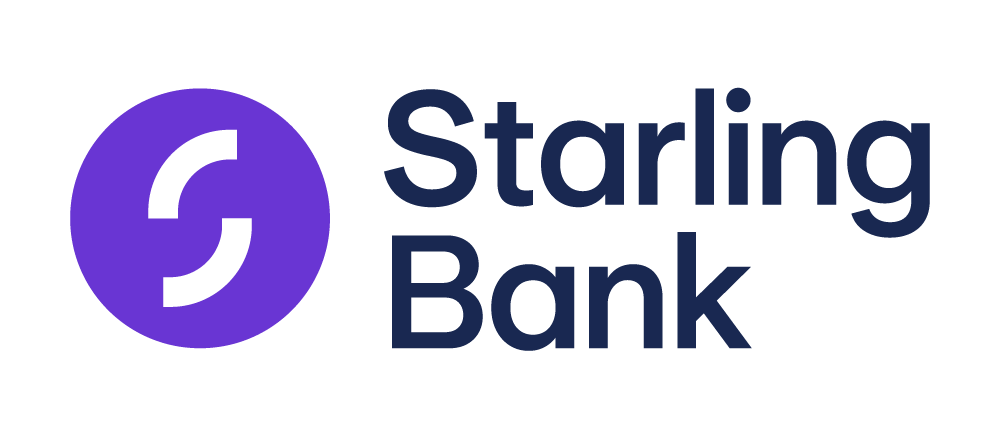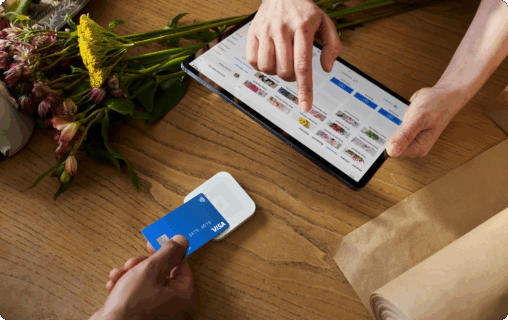If you're just starting out as a business, you might be thinking about opening a business bank account. In which case, you'll want to know which type of account you should open.
A decent business bank account can provide you with a range of tools to help you manage invoices and even help with your tax return.
I've compared the best business bank accounts for startups and rated them based on various criteria sich as fees, rates and pricing.
| Provider | Score | Details |
|---|---|---|
| 1. Revolut Business | ★★★★★ | Learn more |
| 2. Wallester Business | ★★★★★ | Learn more |
| 3. Tide | ★★★★★ | Learn more |
| 4. Zempler Bank | ★★★★★ | Learn more |
| 5. Starling Bank | ★★★★★ | Learn more |
| 6. Soldo | ★★★★★ | Learn more |
| 7. Monzo | ★★★★★ | Learn more |
| 8. Monese | ★★★★★ | Learn more |
| 9. Mettle | ★★★★★ | Learn more |
| 10. Co-operative Bank | ★★★★★ | Learn more |
Best business bank accounts for startups
The below table compares all fees and features that each bank account has along with the type of access you get.
Provider | Monthly Fee | Overdraft Facility | Access |
|---|---|---|---|
1. Revolut Business | From £10 | No | App and Online |
2. Wallester Business | From £0 | No | App and Online |
3. Tide | From £0 | No | App and Online |
4. Zempler Bank | From £0 | Yes (conditions apply) | App and Online |
5. Starling Bank | From £0 | No (Limited Companies and LLPs only) | App |
6. Soldo | From £21 + VAT | No | App and Online |
7. Monzo | From £0 | Yes | App and Online |
8. Monese | £9.95 | No | App |
9. Mettle | Free | No | App and Online |
10. Co-operative Bank | Free | Yes | App and Online |
Are high-street banks recommended for startups?
Out of sheer habit, many people continue to use their local high street bank. But while it can be easier to get a business loan or overdraft with a bank that already knows you, transaction fees on high street business bank accounts can be higher and monthly fees also often apply. What's more, high street bank apps generally offer fewer features compared to their digital competitors.
It can also be a lot quicker to open a business account with an online provider than a high street bank. It's important to weigh all of this up and consider what best suits your business needs.
1. Revolut Business — Best startup business account overall
Online provider Revolut offers a range of business accounts and can be ideal if you regularly trade overseas. You can hold and exchange funds in more than 25 currencies.
Revolut's business offerings include 4 plans.
The 4 plans include:
- Basic for £10/month
- Grow for £25/month
- Scale for £100/month
- Enterprise – custom price — Tailored for larger businesses.
Choosing a more expensive plan will give you access to more features and greater currency exchange limits, but you'll need to consider what's best for your business. If you're a startup, the basic plan might be the best solution for now.
Revolut is an e-money institution (EMI) that protects your money through “safeguarding”, which differs from how your money is protected by UK-licensed banks through the Financial Services Compensation Scheme (FSCS).
Read More: Revolut Business Account Review
For a limited time, click here to get an exclusive CompareBanks deal when signing up for Revolut Business to get the first month of a paid plan free (T&Cs apply). This deal expires on June 30, 2025, so grab it while you can!
2. Wallester Business — Fintech Solution for Business Payment Management
While Wallester Business technically isn’t a bank, it’s a powerful fintech solution for startups looking to manage payments and expenses more efficiently. They specialise in payment card issuance and expense tracking. This makes it a solid option for businesses looking for a financial platform without all the fuss that comes with traditional banking services.
Setting up your Wallester Business account is entirely online and quick. From here, you’ll then have access to features like:

- Unlimited virtual and physical card issuance
- Detailed expense categorisation
- Real-time transaction tracking
These tools are a lifesaver for any business looking to manage their finances in a more transparent fashion.
Wallester Business integrates seamlessly with major accounting platforms like Xero and QuickBooks, which simplifies the process of record-keeping. Additionally, virtual cards can be issued to individual team members or departments, where you can then set spending limits and monitor activity.
As a fintech, Wallester does not provide banking functions such as interest-bearing accounts or loans. Instead, the account comes with crucial features tailored towards startups looking for an agile financial management platform.
3. Tide — Popular startup business bank account
Tide is a straightforward business bank account and its mobile app enables you to keep track of your business transactions with ease. You can also send, pay and follow up on invoices and upload receipts.
Integration with industry-standard accounting software like Quickbooks, Xero, and Sage can make your life a little easier.
With the free plan, there is no monthly fee to pay, but there is a 20p fee for each incoming and outgoing transaction and a £1 cash withdrawal charge. These fees can quickly mount up if you carry out these transactions regularly.

Alternatively, you can choose a paid-for plan (there are three of them) and each will give you access to additional features, such as a 24/7 legal helpline and exclusive member perks.
Another unique perk is that if you want to register as a limited company, Tide will pay the £12 incorporation fee on your behalf and help you get up and running. Plus, you'll get Tide Accounting software included free of charge for six months.
4. Zempler Bank — Top business bank account for startups growing their credit rating
There are two types of Zempler business accounts available for startups: the “Go” account and the “Extra” account:
✅ Go is £0/month, card issuing fee of £9.95, £2 for each ATM withdrawal
✅ Extra is £9/month, no issuing fee, free ATM withdrawals
‘Business Go' is the perfect entry-level account for small businesses looking for no monthly fees. You’ll get a lot of tools that are especially helpful for companies, but if you need more complex services like the ‘Credit builder’ feature, for improving your company’s credit score, you should upgrade to the Extra account.

With Faster Payment, wire transfers to banks are instant. And it takes up to three business days for a payment to arrive through BACS.
5. Starling Bank — Straightforward digital bank account for startups
Starling bank is a fully regulated online bank, so your funds are protected up to £85,000 by the Financial Services Compensation Scheme.
There are no monthly account fees with this business bank account, and it works with popular accounting software like Quickbooks, Xero, and FreeAgent.
The account can be opened by sole traders, limited companies and limited liability partnerships, as well as companies with multiple directors.

The app has a range of budgeting features, and you will also have separate savings spaces to help you save for tax and other overheads.
However, for an additional £7 a month, a Business Toolkit is available to help you create and send invoices, as well as carry out tax calculations, record VAT and help you submit VAT returns.
6. Soldo — Online expense management tool for new businesses
Soldo bank is a UK-based financial services provider that integrates with your current business bank account to provide advanced expense control tools with banking fraud protections.
Soldo's budgeting and accounting software is a major perk for keeping tabs on expenses and allocating funds to employees who use Soldo MasterCards for payment.
Soldo also enables you to manage your money in several currencies by supporting EUR, GBP, and USD wallets.

There are 3 plans available, the Standard plan costs £21 per month + VAT (for 3 users), the Plus plan costs £33 per month + VAT (for 3 users) and the Enterprise plan is a customisable solution for large organisations with unlimited users.
7. Monzo — Up-and-coming startup business bank account
It's easy to open a business bank account with Monzo. You can do so online or through the app. There are two accounts to choose from – the free Lite plan, or the Pro plan that costs £5 a month.
Although Monzo's ‘Lite' account has no monthly fees, it may not be suitable for some businesses as it does not work with any accounting software. The ‘Pro' account, on the other hand, includes features like easy invoicing and will connect with FreeAgent, Xero, and Quickbooks.

An additional feature available with Monzo Pro is the option to have a Tax Pot. This is a way to automatically set aside a percentage of your income for tax.
8. Monese — Popular UK bank accounts for startups in business
It's easy to open a business account with Monese if you're a UK-registered business and you are the sole director of your company. You can easily track your spending and if you also have a personal account with Monese, you can monitor them both from the one app.
The account comes with a contactless Mastercard as well as invoicing tools. It's also a great account for sending money abroad. You can send or receive money from more than 30 countries at competitive rates.

You can choose from the free Classic plan or upgrade do the Premium account for £9.95 a month.
9. Mettle — Trustworthy startup business bank account
Mettle is an online business bank account and is managed by NatWest.
You’ll find it easy to securely open and set up the account using the mobile app and there are no monthly fees to pay. Users can get FreeAgent accounting software for no additional cost (FreeAgent is owned by NatWest). But it also works with Xero and Quickbooks, so you can rest easy if you use a different accounting program.
In addition, you'll be able to automatically generate and send invoices, with notifications for when they are paid. Expenses are streamlined as well.

An additional feature is the ability to set money aside for things like tax, plus you can upload receipts so your records are always up to date.
It is important to remember that you can neither send nor receive money internationally at the moment. While foreign purchases using your Mettle card are permitted, international bank transfers are not.
Your money is protected by the FSCS.
10. Co-operative Bank — Underrated startup business bank account
There's no monthly account fee with the Co-op Business Current Account, making it ideal for startups. There are no fees for digital account transactions either.
You can also integrate your account with accountancy software such as Quickbooks, Xero and Sage, and you'll have access to free support tools for your business.

You can manage your account online, over the phone or in a branch and the bank has been rated as the UK's best Environmental, Social and Governance (ESG) high street bank.
Best startup business bank accounts — Buying Guide
Let's take a closer look at business bank accounts for startups.
What is a startup business bank account?
A startup business bank account is simply a business bank account that can be used for new companies. In some cases, it might waive monthly and everyday banking transactions for the first year or so, while your business gets off the ground.
A business bank account can help you keep your company finances separate from your personal finances. You can use it to pay employees, suppliers, and customers, as well as send and receive money for your company.
If you are a sole trader, you do not have to open a business bank account, but as a limited company, you will need to.
If you conduct a lot of business abroad, you may want to open an account that can handle transactions in foreign currency.
Why use startup bank accounts to manage your money?
Having a separate business bank account from your personal one can help you stay more organised and keep track of your business expenses. You won't have to worry about sorting out your business transactions from your personal spending.
In turn, this will be of help when you come to file your tax return.
✔️ You will get access to professional resources.
A business account and a personal account are, in most respects, interchangeable. However, the best business accounts include extra tools and features that can help you better manage your business.
They may, for instance, be bundled with an invoicing or accounting service or be compatible with other programmes. This will help you save time and make it simpler to keep track of which customers' payments you need to pursue.
Some also have support staff available exclusively for customers, which is invaluable if problems arise.
✔️ Simple accounting to benefit your startup.
When it is just you, working out of a makeshift office in the corner of your living room, the term “business account” might seem a little strange.
But while some business bank accounts are designed for larger businesses, there are a number of business accounts aimed at sole traders and other small enterprises. Some of them are only available in digital form, may be opened immediately without much in the way of paperwork or expense, and are quite inexpensive.
How to open a startup account
Many business bank accounts can be opened online, and usually within the same day or so. As a sole trader, you will need to provide:
- Company history and financials (if available).
- Personal information such as your full name, date of birth, address, and National Insurance number.
Our Verdict
A separate business bank account won't be a legal requirement if you're a sole trader or freelancer, but it is recommended.
There are several ways in which opening a business bank account might benefit a company. For a start, it can help you to build a business credit score. If your company ever needs to borrow money, having a good credit score can make that process easier.
Invoicing tools and simple accounting functions are just two examples of the banking app capabilities that certain business account providers offer to cater to small company owners.
The most significant downside of using business bank accounts is that certain financial institutions impose transaction and account maintenance fees on those who use them. But compare them carefully and you should find an option that works for you.







